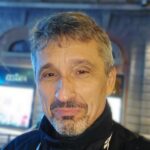Premature failures of inverter-fed machines: root causes and remedial actions
Monday 22 January 2024 at 3:00 PM CET, 9:00 AM EST
By Andrea Cavallini (University of Bologna, Italy)
 Register now using the link below:
Register now using the link below:
https://attendee.gotowebinar.com/register/7068941010205116507
Abstract:
Compared with AC-fed machines, inverter-fed machines can incur in premature failures as they sustain much larger electrical and thermal stresses. Electrical stress is particularly concerning. On one side, it is the stress with the most notable increase (compared to AC-fed-machines, the stress on the phase to phase insulation can be double, whereas that on the turn insulation can be several times larger depending on the design of the machine). On the other side, if the electrical stress exceeds the level for partial discharge (PD) inception and if purely organic insulation systems are involved, failure can happen in very short. Despite the vast evidence of PD in inverter-fed machines, for machines that operate at low voltages the possibility that partial discharges are incepted in the insulation system is sometimes overlooked.
The webinar aims at presenting the reasons for the high electrical stress in inverter-fed machines, highlighting the risk of partial discharge inception in different parts of the insulation system. Other failure mechanisms, indirectly connected with the electrical stress, as thermal runaway will be considered as well. Attention will be paid also to the effect of other stresses (as temperature, vibrations, or humidity) on the increased risk of partial discharge inception. In particular, the short (chemical incompatibility) and long-term effect of thermal aging on partial discharge inception will be discussed. Eventually, mitigation techniques will be indicated. Considering the audience, focus will be on materials indicated as corona resistant materials, rather than on more traditional approaches as e.g. filters and multilevel converters.
Presenter’s bio:
Andrea Cavallini (FIEEE’22) is a full professor at the University of Bologna. His main research interests are focused on partial discharge phenomena in power system equipment as well as in electrical drives used for transport electrification. He is co-author of about 280 scientific papers and 15 international patents. He is the chair of the IEEE Dielectrics and Electrical Insulation Society (DEIS) Technical committee on Dielectrics and Electrical Insulation for Transportation Electrification. He was DEIS Administrative Committee member, DEIS Education committee chair, DEIS Italy chapter chair, convener of CIGRE WG D1.43 and D1.74. He is a member of IEC TC 2 MT 10 (Italian representative, project leader of IEC 60034-18-41 Ed. 2), and SAE.

